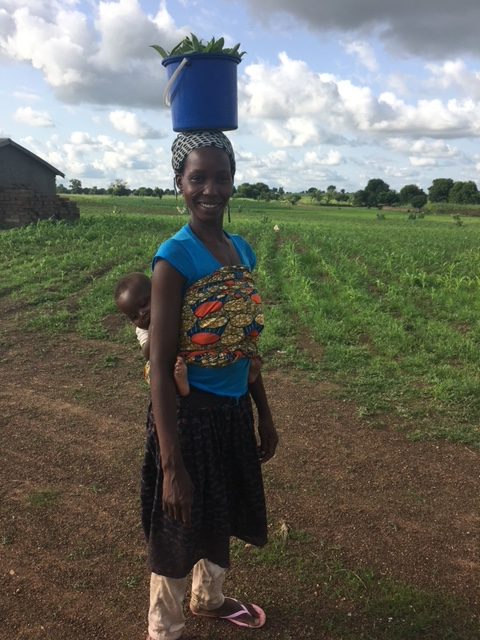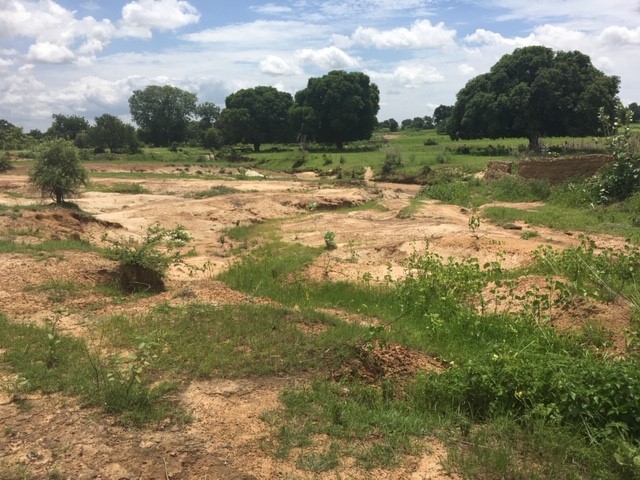by Elizabeth Bryan, International Food Policy Research Institute (IFPRI)
Small scale irrigation can increase smallholders’ income, contribute to economic growth, boost food and nutrition security, and enhance climate resilience. In the past, these immense benefits have been top priorities for decision-makers investing in small scale irrigation. Another potential outcome has been receiving growing attention: empowerment of rural women.
But, successfully designing irrigation interventions to support women’s empowerment requires concerted efforts and careful planning. Women’s level of empowerment depends on the context within which they live, resources they have access to, and their ability to make strategic life choices resulting in well-being improvements. These factors change throughout the course of women’s lives. That’s why studying what empowerment looks like and what women want—in a certain place, at a certain time—is a crucial first step to inclusive irrigation investments.
This is one conclusion my colleagues and I have reached based on recently published research on the link between small scale irrigation and women’s empowerment, conducted with support from the Feed the Future Innovation Lab for Small Scale Irrigation.
Understanding empowerment
In the Upper East Region of Ghana, many households live on the edge of malnutrition and poverty. They have few options to improve their well-being, but small scale irrigation offers the potential to expand production during the long dry season and boost incomes, food security, nutrition, and health.
Conducting focus groups and interviews with men and women farmers and traders in four villages in the Garu-Tempare district, we sought to understand whether introducing modern technologies for small scale irrigation could also increase women’s empowerment by changing their access to resources, decision-making authority, control over income, and time burden.

Overall, we found women were becoming more involved in income-earning activities, and were taking on more leadership roles, contributing a larger share of household income, and participating more in decision-making. While this trend was generally viewed as positive, many women felt burdened by the additional responsibility of being expected to provide for their family:
“My father farmed a lot and had large stock of food and so looking for food to feed the family was not the job of my mothers and my father also supported his children’s education. But now everything is on me. My husband is not able to support,” said a woman irrigator in Akara village.
On the other had, women also reported increasing access to financial resources, information, and training as well as freedom to travel and to participate in trade.
The role of irrigation in empowerment
In this context, many women were engaged in irrigated production during the dry season. The women who were involved reported that they did directly benefit, gaining control over income from the irrigated plots they managed. They also listed indirect benefits, including greater income and food security for the household.
“Those who use the machine [motor pump], it helped us to get money. When our husbands gave us land and we see that it is small, we use some of the money to go and buy more land to farm. We also used some of the money to buy seeds and hire ‘by day’ labor to help us in our farming activities and buying fertilizers,” reported one woman who used a motorized pump in Mongnoori village.
Both men and women recognized welfare improvements as a result of small scale irrigation, including higher social status, greater food security and diet quality, and the ability to achieve shared goals, such as sending children to school. Gains such as these are factors that can contribute to women’s empowerment.
Barriers to women’s empowerment
However, several barriers hinder women from directly adopting and benefitting from small scale irrigation. We found that women tended to have less access to resources, such as land, water, and pumps.
“If we get [a pump], we will give it to our husbands and are helping them…. [We] can’t do [our] own [irrigated farming] because we don’t have land,” said a woman from Yidigu village.
Women also lacked access to financial resources like credit to purchase irrigation equipment, rent land near water sources, or hire labor to dig wells. Social norms contributed to these social inequalities—especially inheritance norms limiting women’s access to land and property.

However, women often benefitted indirectly from small scale irrigation, even when they themselves did not directly engage in the activity, as it freed up time previously spent farming to engage in other income-earning activities over which they had more control.
“Your husband farms [in gardens] and you water and thank God associations have come and we can now get access to machines [pumps], and the men will use them to irrigate. So, now we only observe and they irrigate,” explained a woman in Mongnoori village.
This finding suggests that women might benefit from investments in small scale irrigation in unexpected, indirect ways. In this specific context, decision-makers looking to achieve empowerment for women through small scale irrigation might consider other strategies—beyond providing access to irrigation—such as developing opportunities for women within value chains or marketing activities.
Tools to start right and stay on course
As governments and programs increasingly expand investments in irrigation infrastructure and technologies, the constraints, needs, and preferences of women should factor into the design and implementation of irrigation interventions to ensure that women benefit.
This can mean engaging gender experts and using research-based tools to help ensure that women benefit from planned interventions. For example, the Gender in Irrigation Learning and Improvement Tool (GILIT) can be used to enable gender equity in irrigation projects and schemes, and the REACH toolkit can provide guidance on how to include women in planning and evaluating irrigation projects. Later on in the lifecycle of irrigation programs, the Pro-WEAI tool can help measure women’s empowerment, enabling decision-makers to make adjustments to reach empowerment goals.
These types of gender-sensitive tools are indispensable for anyone investing in small scale irrigation with the goal to support women’s empowerment. While women can benefit from small scale irrigation, one cannot assume that providing access to irrigation is necessarily enough. Investing in understanding how to benefit women—whether directly via irrigated farming or via adjacent opportunities—is necessary to successfully add women’s empowerment to the long list of benefits that small scale irrigation delivers.


